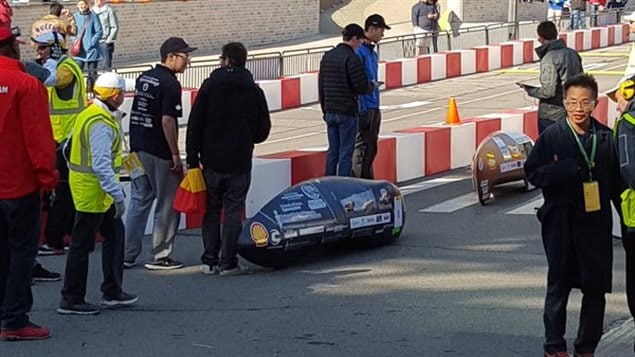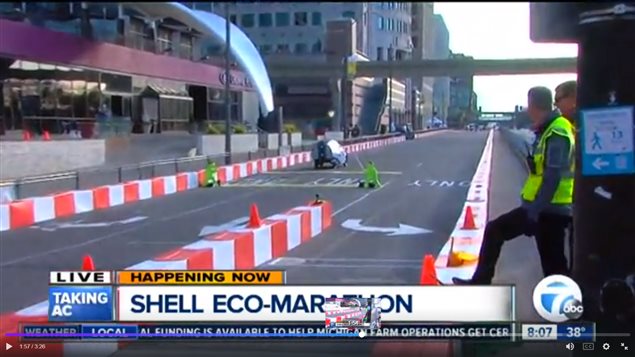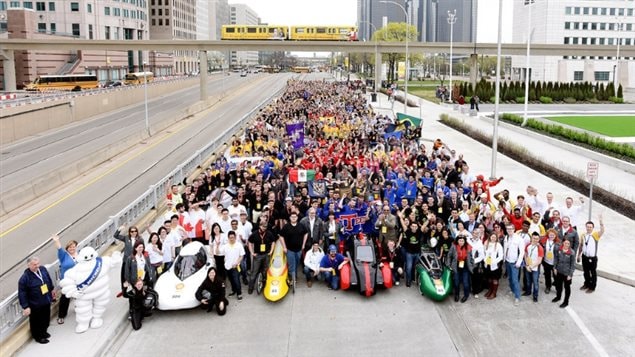Imagine getting over 1,000 kilometres per litre of gasoline in a vehicle. Two Canadian university teams have done just that. They were participants in the 2016 Shell Eco-marathon Americas held this weekend in Detroit.
Teams from the University of Toronto, and University of Laval have been rivals for several years, both consistently beating out competitors in the US and elsewhere in the supermileage gasoline category.
This year Laval won back the title getting 1099km/litre over second place U of T with its 1005 km/litre average.

Both teams far outpaced third place California Polytechnic State University with its 517km/litre average
The Shell Eco-marathons push students to develop more efficient engine and vehicle designs. This was the 10th annual Shell Eco-marathon of the Americas.and attracted over 1,000 students from a record 124 teams representing seven countries – Brazil, Canada, Ecuador,Guatemala, Mexico, Puerto Rico and the United States – competing over three days
There are two classes for vehicles, the futuristic aerodynamic “prototype” class, and the “Urban concept” for vehicles which more closely resemble current or typical car designs. There are also two categories, one for fuels: gasoline, battery-electric, diesel, CNG, hydrogen, alternative fuel, and another for hydrogen fuel cells and battery electric.
Four of the top ten supermileage protorype finishers were Canadian with 5th place finisher designed by Dalhousie University in Halifax, N.S. and in 8th place, a vehicle from Concordia University in Montreal.

More than 1,000 students from a record 124 teams representing seven countries – Brazil, Canada, Ecuador, Guatemala, Mexico, Puerto Rico and the United States – competed over three days with two classes of vehicles.
Canadians also won in
- =prototype battery-electric”- Univerite de Sherbrooke (Quebec) with their vehicle going just over 731km/kWh.
- =Queen’s University (Kingston, Ont) winning prototype hydrogen fuel cell just over 135km/m3
- =University of Alberta winning urban concept hydrogen fuel cell at just under 66km/m3
Another interesting award went to the University of Colorado in the US for technical innovation. While the majority of vehicles use high-tech plastics, the Colorado team sought to reduce the total energy lifecycle cost of its vehicle through the innovative use of natural fibre composite materials mixed with wine tannins and gelatin.
Eco-marathons are held in Europe, the Americas, and Asia. The event began 31 years ago in Europe and in addition to the Americas competition, Shell Eco-marathon is held annually in Europe and Asia,
The first “World” Urban Concept challenge will take place in July in London England.







For reasons beyond our control, and for an undetermined period of time, our comment section is now closed. However, our social networks remain open to your contributions.